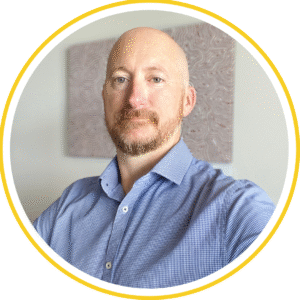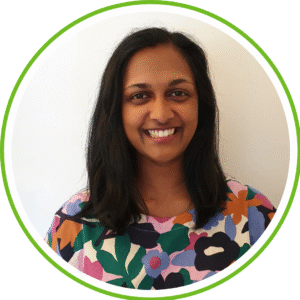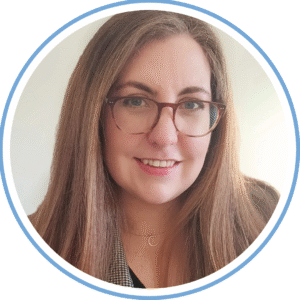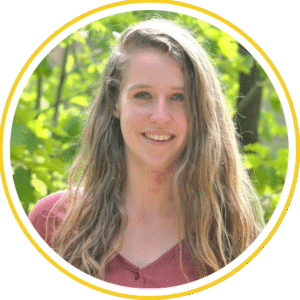YOUTHreach at IEPA15
Breaking Boundaries Together
With this year’s theme, “Breaking Boundaries”, IEPA brings together researchers, clinicians, and stakeholders from around the world to explore how early intervention in mental health can expand beyond traditional diagnostic categories and disciplinary borders.

IEPA15
We are thrilled to share that many YOUTHreach scientists will be participating in IEPA15: the 15th International Conference on Early Intervention and Prevention in Mental Health, taking place in Berlin from 8–10 September 2025. With this year’s theme, “Breaking Boundaries”, IEPA brings together researchers, clinicians, and stakeholders from around the world to explore how early intervention in mental health can expand beyond traditional diagnostic categories and disciplinary borders.
For YOUTHreach, this conference offers an exciting opportunity to present our project, exchange ideas with international colleagues, and strengthen collaborations that help move the early intervention paradigm forward. We look forward to connecting in Berlin: whether to share knowledge, discuss best practices, or simply meet researchers who are as passionate about youth mental health as we are.
We are pleased to highlight the following Youthreach-related presentations. Please note that additional YOUTHreach researchers will also be present at IEPA, and while we cannot flag all interesting sessions and conferences here, we warmly invite you to connect with us during the event.


Our presentations
-
✔️ International Perspectives on Integrated Youth Mental Health Services at IEPA: Pre-Event
✔️ YOUTHreach symposium
✔️ Art as a Pathway to Recovery
✔️ Peer involvement in YOUTH Mental Health Services
✔️ Early Intervention Models in German Mental Health Care
✔️ Linking Digital Tools and Youth Resilience
✔️ Symposium on Moderated Online Social Therapy for Youth Mental Health
✔️ Cultural Adaptation and Implementation of ENYOY: Successes and Challenges

Prof. dr. Therese van Amelsvoort (Maastricht University)

Shane Cross, BPsych (Hons), MPsych (Clinical), PhD (Orygen Digital)

Prof. Dr. med. Andreas Bechdolf (Charité Universitätsmedizin Berlin)
International Perspectives on Integrated Youth Mental Health Services: pre-event
On Sunday, 7 September 2025, the 5th Network Meeting on Early Detection and Early Intervention (Netzwerktreffen Früherkennung und Frühintervention) will take place in Berlin as a pre-event to IEPA 15. The afternoon session will highlight international models of low-threshold youth mental health services, bringing together leading experts to share experiences from different continents:
- headspace (Australia) – Shane Cross (Orygen, Melbourne)
- Jigsaw (Ireland) – Jim Lyng (Dublin)
- @ease (Netherlands) – Therese van Amelsvoort (Maastricht University)
- IYMHS (Indonesia) – Tri Kurniati Ambarini (Surabaya)
- soulspace (Germany) – Andreas Bechdolf (Berlin)
The focus is on how integrated youth mental health services can provide accessible, stigma-free, and developmentally appropriate care for young people in need. By showcasing these international models, the session aims to identify shared challenges and opportunities for adaptation across different healthcare systems.
Several of the services featured – including headspace, Jigsaw, @ease and soulspace – are also partners in YOUTHreach. Their joint involvement reflects the growing momentum to develop and evaluate youth-friendly models of care, and to translate international lessons into the European context. The joint discussion following the presentations will explore how these insights can inform both national strategies and broader European frameworks. By fostering cross-country learning, the meeting underscores the importance of international collaboration in building sustainable, youth-friendly mental health care.

Prof. dr. Therese van Amelsvoort (Maastricht University)

Dr. Covadonga M. Díaz-Caneja (Institute of Psychiatry and Mental Health. Hospital General Universitario Gregorio Marañón)

Prof. Matthew Broome (University of Birmingham)
YOUTHreach symposium
On Monday, 8 September 2025, we present the symposium YOUTHreach: Bridging Gaps in Mental Health Support | A Comprehensive European Strategy, co-chaired by Prof. Dr. Thérèse van Amelsvoort (Maastricht University), dr. Covadonga M. Díaz-Caneja (Institute of Psychiatry and Mental Health Hospital General Universitario Gregorio Marañón), and Prof. Matthew Broome (University of Birmingham).
Europe is facing a youth mental health crisis that will last for decades, with far-reaching consequences for health, wellbeing, and economic productivity. Today, 50% of European youth report unmet mental health needs, while only around 30% receive appropriate care. YOUTHreach was created to respond to this urgent challenge. The symposium will introduce the EU funded YOUTHreach project and its mission to deliver an integrated European youth mental health strategy. Central to this work is the evaluation of three innovative, youth-friendly interventions co-created with young people and already in use across Europe and beyond:
- Walk-in youth mental health support centres: accessible services designed as low-threshold “one-stop shops” where young people can receive timely support.
- A guided self-help app based intervention: this digital tool helps young people manage symptoms early and independently, with professional guidance.
- Clinical and peer-moderated digital treatment platforms: developed in Australia and now adapted to European contexts, combining therapeutic content, peer-to-peer support, and clinical input.
At IEPA15, YOUTHreach researchers will present the latest evidence on the feasibility, acceptability, and effectiveness of these approaches. The discussion will highlight how they can be scaled up across Europe, adapted to new sites, and embedded in national health systems.
Art as a Pathway to Recovery
We spotlight the contribution of Prof. Srividya Iyer (McGill University), who is a valued member of the YOUTHreach External Expert Advisory Board . She will co-chair the symposium “Art as a Pathway to Recovery: Breaking Epistemic Boundaries and Embracing New Perspectives” at IEPA15. This symposium explores the transformative power of art in mental health recovery. By engaging with diverse art forms, the session highlights how creative expression can foster healing, amplify lived experience, and reshape societal narratives around mental illness.
This symposium emphasizes that recovery is not just clinical: it is deeply personal, creative, and social. By embracing arts and creative expression, we can open new pathways for understanding mental health, ensuring that recovery is not only measured in symptoms but in meaning, connection, and hope. This is also reflected in the poster of experienced expert and artist Deniece Clermonts who will be at IEPA as well. Deniece is one of the wonderful peer-listeners at the @ease walk-in centres in the Netherlands. She also hosts art-based workshops as a tool to connect and create a safe youth mental health community. Come and check her poster when you are visiting IEPA: inspiration guaranteed!

Dr. Sophie Leijdesdorff (Maastricht University)
Peer involvement in YOUTH Mental Health Services
The symposium “Where to Start? Establishing Peer Involvement in the Design and Delivery of Youth Mental Health Services and Research in Continental Europe” will highlight how young people and families can play a meaningful role in shaping services. Although youth participation has become standard in many English-speaking countries, in much of continental Europe it is still emerging. This symposium brings together pioneering projects that aim to change that.
Dr. Sophie Leijdesdorff (Maastricht University) will present work on establishing youth peer support in a GP setting in the Netherlands. With GPs acting as gatekeepers in Dutch mental health care, the system often struggles to keep pace with demand. Sophie’s study explores how trained peers can complement primary care, offering flexibility, validation, and role-modelling to young people navigating the system. Siv-Therese Bogevik Bjørkedal and Trine Hammershøy (headspace Denmark) will share findings from the first independent evaluation of the Danish headspace model. Since 2013, headspace centres have provided free, low-threshold support to young people aged 12–25, through a mix of trained volunteers, chat services, and local community engagement. With 30 centres nationwide, headspace Denmark has become a widely endorsed model. These contributions demonstrate the progress being made to embed youth voices and peer involvement in continental Europe. They also show how services like headspace and GP-based peer support can act as blueprints for other regions, ensuring that youth mental health care is not only accessible, but also co-designed with the people it is meant to serve.

Prof. Dr. med. Andreas Bechdolf (Charité Universitätsmedizin Berlin)
Early Intervention Models in German Mental Health Care
We are pleased to highlight the contribution of Prof. Andreas Bechdolf (Charité – Universitätsmedizin Berlin, Vivantes Hospitals, German Center for Mental Health) to IEPA15. On Monday, 8 September 2025, he will co-chair the symposium “Early Intervention Models in German Mental Health Care,” showcasing innovative approaches developed in Germany. Prof. Bechdolf will present on soulspace and FRITZ, two pioneering Berlin-based services designed to meet the mental health needs of young people. Soulspace is a youth-friendly, low-threshold, “one-stop” service for young people seeking help for interpersonal, school, work, or clinical problems. Co-created with service users, it bridges adult and child psychiatry with counselling services, offering accessible, stigma-free care at the earliest stage of help-seeking. FRITZ (Early Intervention and Detection Center) is a specialized program providing intensive, evidence-based treatment for young people experiencing a first episode of psychosis.
Soulspace is also one of the YEAH interventions currently being studied in YOUTHreach, underscoring its role as a European frontrunner in rethinking youth mental health services. By offering accessible, integrated, and co-designed support, soulspace exemplifies the YOUTHreach vision: to build youth-centered models of care that are scalable, evidence-based, and responsive to the real needs of young people.

Prof. Dr. Ulrich Reininghaus (Central Institute of Mental Health (CIMH), Mannheim/Germany)
Linking Digital Tools and Youth Resilience
Prof. Ulrich Reininghaus (CIMH Mannheim / King’s College London) will amongst others chair a symposium on “The potential of digital mental health tools to increase resilience of young people in different contexts.” The session brings together international evidence on how innovative digital interventions can promote youth mental health across diverse cultural settings, highlighting ecological momentary interventions (EMIs), hybrid approaches, and scalable chatbot-based support.
This focus directly resonates with Intervention 2 (SELFIE) in YOUTHreach. SELFIE is a self-guided ecological momentary intervention designed to strengthen resilience and support young people in their daily lives. By targeting real-time mechanisms of stress, emotion regulation, and coping in natural environments, SELFIE exemplifies the potential of digital tools to deliver accessible and context-sensitive mental health support.
Through his leadership in advancing participatory digital innovations, Prof. Reininghaus’ contribution at IEPA will not only showcase global developments but also underline the relevance of YOUTHreach’s work in shaping the future of youth mental health promotion and prevention.

Prof. Mario Alvarez-Jimenez (Centre for Youth Mental Health, The Univestiy of Melbourne)

Dr. Shaminka Mangelsdorf (Orygen and the Centre for Youth Mental Health, University of Melbourne)

Dr. Maeve Dwan-O’Reilly (University of Galway)

Dr. Marilon van Doorn (Amsterdam UMC)

Fenna Hellegers (Amsterdam UMC)
Symposium on Moderated Online Social Therapy for Youth Mental Health
We are proud to see YOUTHreach colleagues take the stage in a symposium chaired by Prof. Mario Alvarez-Jimenez and Dr. Shaminka N. Mangelsdorf from Orygen and The University of Melbourne. The symposium, “Breaking Diagnostic, Interdisciplinary, and International Boundaries with Moderated Online Social Therapy for Youth Mental Health,” highlights one of YOUTHreach’s interventions: Moderated Online Social Therapy (MOST).
Developed in Australia, MOST is a co-designed, cutting-edge digital mental health platform that integrates therapeutic content, peer-to-peer support, and professional guidance. By providing accessible, engaging, and youth-centered care, MOST addresses critical gaps in traditional face-to-face mental health services. It has expanded internationally across Australia, North America, and Europe. The symposium showcases how MOST is adapted and evaluated in different cultural and service contexts:
- Australia (Rebound): Building the foundations of MOST, where digital support was first combined with peer-led communities and clinical guidance, demonstrating its potential to transform youth mental health care.
- Ireland (University of Galway): Dr. Maeve Dwan-O’Reilly presents insights into the use of MOST in a university setting. This study highlights the essential role of peer support, both for young people accessing the platform and for the clinicians who collaborate with peer workers. The findings show that MOST is not only acceptable in this setting but valued for its unique peer-to-peer element.
- The Netherlands (Amsterdam UMC, ENYOY): Dr. Marilon van Doorn and Fenna Hellegers share long-term results from ENYOY, the Dutch adaptation of MOST. Positive effects on mental health, functioning, and psychological distress were sustained over time, with peer work and peer-to-peer support identified as particularly helpful. The results strongly support scaling up interventions like ENYOY that tackle barriers to care and respond to the pressing needs of young people.
MOST demonstrates how innovation and co-creation with young people can drive forward the next generation of early intervention. We look forward to the discussions at IEPA15 and to continuing the collaboration that brings youth-friendly, evidence-based digital mental health care to young people across Europe and beyond.

Dr. Marilon van Doorn (Amsterdam UMC)
Cultural Adaptation and Implementation of ENYOY: Successes and Challenges
At IEPA15, Dr. Marilon van Doorn (Amsterdam UMC) presents on the Dutch adaptation of ENYOY, a digital youth mental health platform rooted in Australia’s MOST+. Developed in co-creation with young people, ENYOY integrates personalized therapy, peer interaction, and professional support to deliver accessible, stigma-free early intervention.
Her talk titled ‘The cultural adaptation and implementation of ENYOY, A Digital Youth Mental Health Platform: successes and challenges’ will share implementation successes in research settings such as high user engagement, transdiagnostic design, and positive health framing alongside challenges for scale-up, including financing, cross-sector collaboration, and system integration.
As part of YOUTHreach, ENYOY represents how digital innovation can broaden early intervention, reduce stigma, and shape future youth mental health services across Europe.
